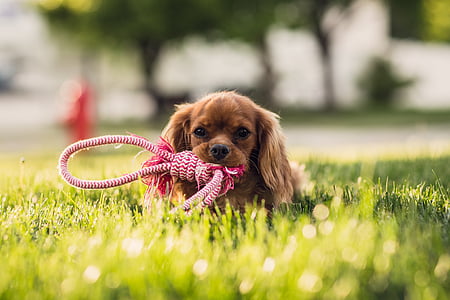
Why do dogs eat grass? Grass eating is by all accounts basic among canines and isn’t pretty much as odd as a portion of the other eating rehearses little dogs regularly participate in. The explanation for this scavenging conduct isn’t totally clear, albeit a few canines simply appear to like eating grass.
For different canines, however, ingesting grass might be an approach to satisfy a neglected wholesome need or self-instigate regurgitating to facilitate an annoyed stomach. Or then again they may do it at times just on the grounds that they’re exhausted.
Should you let your dog eat grass?
Contents
Grass eating is by all accounts normal among canines and isn’t pretty much as odd as a portion of the other eating rehearses little dogs regularly participate in.
The purpose for this scrounging conduct isn’t completely clear, albeit a few canines simply appear to like eating grass.
For different canines, however, ingesting grass might be an approach to satisfy a neglected wholesome need or self-incite heaving to facilitate an agitated stomach. Or then again they may do it here and there essentially on the grounds that they’re exhausted.
Do canines eat grass to settle their stomach?
Eating grass doesn’t generally bring about spewing, however, it can now and then, particularly in canines that don’t eat grass routinely. It’s conceivable that these periodic grass eaters are endeavoring to utilize it as a characteristic emetic to invigorate spewing when they feel unwell.
You may see this if your canine is somewhat gassy prior to going outside to do its business or after it’s eaten something it should. Its excrement may likewise be somewhat runny, stained, or not ordinary in some alternate way, and the canine may look somewhat down or marginally less vivacious than typical.
Once outside, your canine with a gassy stomach may start to swallow significant pieces of grass. The long, stimulating strands may provoke it to disgorge anything that’s been causing its annoyed stomach. At the point when this is done, it might get back to its ordinary exercises decently soon and give no different indications of sickness.
Is it something to worry out?
Numerous veterinarians consider grass-eating ordinary canine conduct. While canines don’t acquire anything of genuine dietary benefit from grass, it likewise may not damage them — as long as there are no risky composts, pesticides, or herbicides utilized on the actual grass.
You can help secure your grass eater by utilizing just non-harmful items in your own yard.
At the point when you’re out in open territories, watch out for signs notice that synthetics have been utilized on the grass. You can likewise give a protected option by growing a grass or spice garden explicitly for him to nibble on.
Why dogs eat grass psychological view?
Much the same as individuals, canines require fiber in their eating regimens to have a productively working stomach related framework. All things considered, canines are omnivores. This implies that great wellbeing depends on plant food sources just as top-notch meat.
Eating grass might be a simple, and apparently scrumptious path for canines to add roughage to their eating routine, assisting with keeping things coursing through their gastrointestinal lot (GI or stomach related plot).
Similar to individuals who thoughtlessly chomp their nails, canines will frequently eat grass because of fatigue or uneasiness.
On the off chance that your canine isn’t demonstrating any side effects of stomach-related problems however crunches persistently on grass, think about mental explanations behind their conduct.
On the off chance that your canine appears to be exhausted, expanding the length, distance, or force of strolls could assist with lessening grass eating.
For canines that experience the ill effects of division tension, take a stab at leaving an old cover or shirt with your aroma on it with your canine when you take off from the house.
Your canine may locate the recognizable aroma consoling and help to check grass eating.
How Can I stop my canine to eat grass?
Notwithstanding why your canine eats grass, it’s not the best nibble for him. While the actual grass may not be hurtful, the herbicides and pesticides splashed on it tends to be poisonous for your canine.
Additionally, while culling the grass from the beginning, the canine may ingest intestinal parasites, for example, hookworms or roundworms that taint the grass in fecal buildup from different canines. All in all, how would you stop the brushing?
Canines that react to food treats might be prepared to stop the grass eating in return for a superior choice. That implies you need to bring treats along when you take your canine for a walk and go with him on potty breaks.
Any time the canine inclines down to snack grass, divert him by guiding him to stroll toward another path or offer a verbal remedy and offer a treat when he consents.
Canines that are driven by friendship can be prepared to utilize a similar technique subbing positive verbal support and petting as remunerations. Canines that react to verbal orders may require a basic “heel” order to intrude on the lush bite and re-direct their consideration.
Conclusion:
In the event that you notice them eating grass all the more regularly or unreasonably, be ready of potential hidden sicknesses that your canine is endeavoring to self-treat. Additionally search for heaving, looseness of the bowels, weight reduction, the decline in craving, blood in the stool, laziness, or lip licking.
Continuously screen your canine when there are house plants close by, as specific assortments can cause poisonousness on the off chance that they’re bitten or ingested. While biting on the grass is a typical social activity in a huge number, you can prepare your canine out of the conduct to help give true serenity.